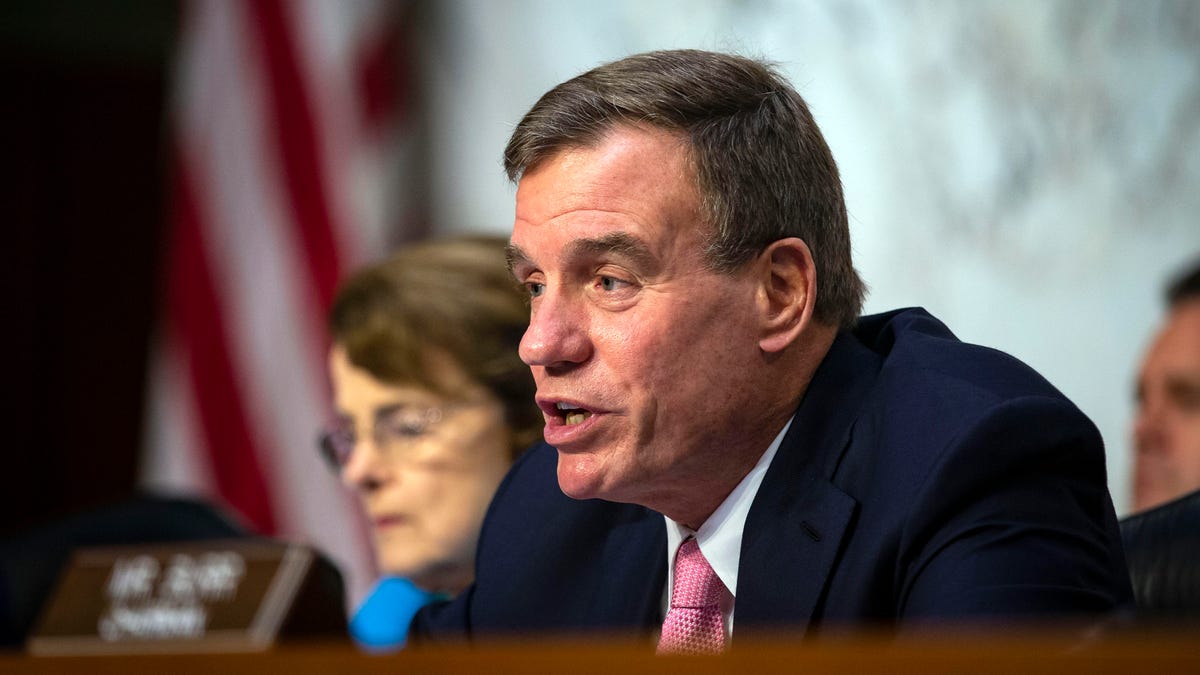Sen. Warner pitches 20 ways for government to regulate Facebook, Google
Data protection laws, media literacy programs and more.

Sen. Mark Warner
Mark Warner has some ideas about how to combat issues brought on by major tech companies.
In a policy paper published Monday by Axios, the Virginia Democratic senator's staff suggested 20 ways for policymakers to regulate tech firms like Facebook, Google and Twitter. Options include creating GDPR-like data protection laws and funding media literacy programs.
"Each [company] deserves enormous recognition for the technological transformation they have engendered around the world," the paper reads. "As their collective influence has grown, however, these tech giants now also deserve increased scrutiny."
The proposals fall under three categories: battling disinformation, protecting user privacy and promoting competition in tech.
One option is to establish federal funding for media literacy programs. The paper also suggests making platforms label bot accounts or clearly identify real accounts. Not doing so could result in being sanctioned by the Federal Trade Commission, it suggests.
Another suggestion is to make platforms that don't take down falsified video and audio legally liable for "defamation, invasion of privacy, false light, and public disclosure of private facts."
The paper also presents the option of creating an "essential facilities" label for technologies that are "critical" and have a large number of users, such as Google Maps. These platforms would have to "provide third-party access on fair, reasonable and non-discriminatory" terms, and wouldn't be able to engage in preferential conduct.
Warner's staff also suggests creating a US law similar to Europe's GDPR data privacy law. Features could include data portability, the right to be forgotten and first party consent.
The paper doesn't mention breaking up tech giants, Axios notes, as many advocacy groups have been calling for. It also doesn't suggest creating a federal regulator for digital concerns.
Warner, who is vice chair of the senate intelligence committee, has been critical of social media as the committee investigates Russian interference in the election, saying companies didn't take election meddling seriously.
"The hope is that the ideas enclosed here stir the pot and spark a wider discussion -- among policymakers, stakeholders, and civil society groups -- on the appropriate trajectory of technology policy in the coming years," the paper reads.
Follow the Money: This is how digital cash is changing the way we save, shop and work.
CNET Magazine: Check out a sample of the stories in CNET's newsstand edition.

